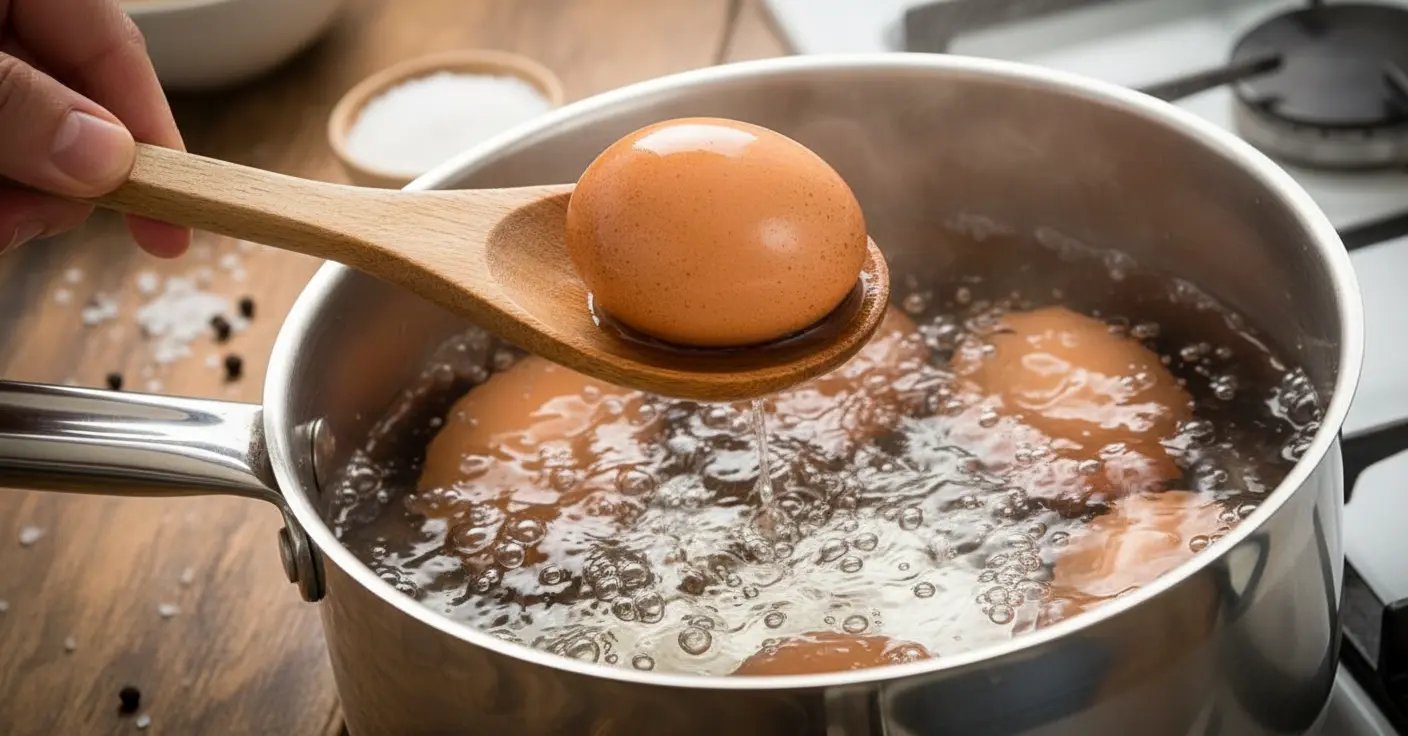Everyone has that cherished family food secret, passed down from generation to generation—often with ceremonial pomp. But what if those culinary pearls of wisdom are, in fact, elaborate kitchen fairy tales? Ready to have your mind (and your marinara) blown? Let’s dive into those shocking food habits that countless families have secretly handed down—much to the despair of kitchen scientists everywhere.
The Science of Culinary Myth-Busting
Raphaël Haumont, a chemist specialized in molecular gastronomy and author, has a soft spot for kitchen mysteries. His call to (kitchen) arms is clear: “Approach cooking with a scientific mindset. Sit down and try to understand what’s happening, then run several tests.” He’s not just theorizing in an ivory tower: you might’ve seen him in « Les carnets de Julie with Thierry Marx ». His mission? To get us thinking when we stand before the stove, to stop blindly repeating old family traditions—or worse, the wild tips found on online forums.
Haumont’s mantra rings out: « Let’s stop with all these useless tricks! » You heard the scientist.
Kitchen Habits That Refuse to Die
Let’s slice through the most resilient myths, one by one, with a little help from science (and some exasperation).
- The Olive Oil in Pasta Water. Want to impress dinner guests or just your own sense of Italian flair? Pour a dash of olive oil in your pasta water. Except…science says no. “As olive oil doesn’t mix with water and only floats to the surface, it’s absolutely pointless,” Haumont explains. Want non-sticky pasta? Use a very large amount of water—think 1 liter per 100 grams of pasta. Love olive oil for its flavor? Just add it after draining the pasta. Basta cosi.
- Hard-Boiling Eggs with Vinegar and Salt. Did grandma whisper that a splash of wine vinegar and a little salt in the water would stop eggs from cracking and keep the whites tender? Not quite. “It has no effect—or worse, the vinegar weakens the shell, increasing the chance your egg will explode during cooking.” Stick to gently simmering water, and you’re set.
- Mayonnaise Moves: The ‘Figure 8’ Myth. The internet is awash with tips for fail-proof mayo. Iconic among them: beat your eggs by drawing a ‘8.’ To Haumont, “A 5, 6, or 7 would work just as well.” The real secret? Pour the oil very slowly and mix as fast as possible—an electric beater is your friend. That’s called an emulsion: lecithin in egg yolk blends the oil and the water together. It’s the speed of mixing that does the trick—not the dance move. Also, forget ingredient temperatures. The egg can come straight from the fridge; your mayo will still rise to greatness.
- Ice Baths for Green Veggies. Recipes love telling you to plunge cooked peas into ice water “to set the chlorophyll.” Truth: cold water merely stops the cooking, nothing else. For vibrant green veggies, add baking soda (½ teaspoon per liter of water) or even use sparkling water. That’s the chemical advantage.
- ‘Aged’ Egg Whites for Meringues or Macarons. Some say you should age egg whites at room temperature for optimal meringue. Not only is this unnecessary, but “leaving egg whites out is a sanitary disaster,” Haumont declares. Cold egg whites—straight from the fridge—whip perfectly. His tip: add sugar little by little from the beginning and beat steadily. For those packing high-tech gear, try the siphon method: egg whites and sugar go in, burst the gas cartridge, shake, and voilà: meringue perfection.
Meat, Herbs, and the Art of Kitchen Timing
The greatest kitchen failure magnet? Cooking meat. There are tricks galore, but Haumont sums it up neatly: “Cook meat very quickly or very slowly. Never let it boil.” Meat cooks at 55–56°C, but push it past 100°C and it boils, loses all flavor, and turns rubbery. You must pick your side—sear or slow cook, but don’t half-bake it.
Let’s talk herbs. Laurel, thyme, and rosemary can go in from the start. But other aromatic herbs? “Past 45°C, half their aroma evaporates. Fresh herbs like coriander, chives, or basil should always be added at the very last minute and never cooked if you want their flavor,” Haumont warns. That’s a herb intervention if we ever heard one.
Conclusion: From Family Legends to Fact-Based Feasts
Kitchen traditions bring us together, but sometimes science calls for a little constructive rebellion. The next time someone pours oil into pasta water or insists on aging egg whites on the counter, offer them a taste of chemistry. So be brave, question the handed-down hacks, and let your inner food scientist flourish. It’s not just your taste buds that will thank you—so will every chemist silently weeping over wasted olive oil. Bon appétit…and pass the bicarbonate, will you?

John is a curious mind who loves to write about diverse topics. Passionate about sharing his thoughts and perspectives, he enjoys sparking conversations and encouraging discovery. For him, every subject is an invitation to discuss and learn.






